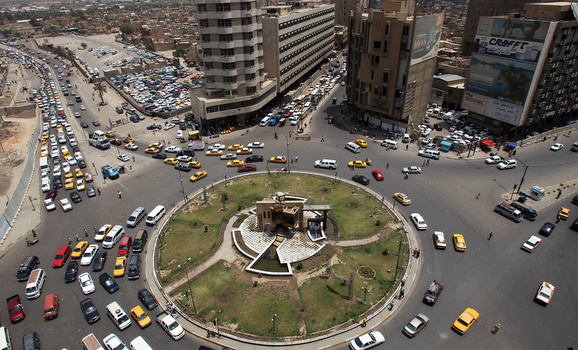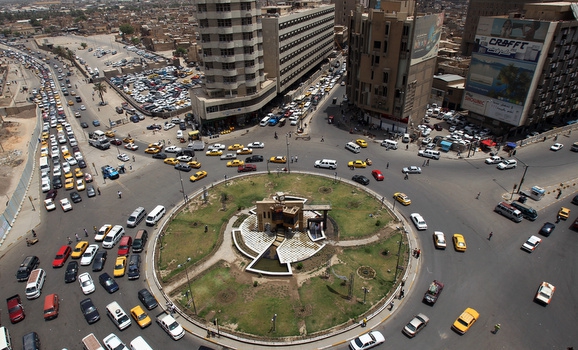 Iraq�s decision to halt the import of Iranian-made cars has resulted in confusion in the car market, which for the past nine years has relied on the affordable, yet subpar, Iranian brands.
Iraq�s decision to halt the import of Iranian-made cars has resulted in confusion in the car market, which for the past nine years has relied on the affordable, yet subpar, Iranian brands.The state-owned corporation for car imports stated that it had banned the import of Iran-made Saiba and Samand cars at the beginning of the year. The future tendency will be toward Japanese and Korean cars such as Toyota and Hyundai, in a bid to implement higher standards on the roads.
Economic�ties between Iraq and Iran�are unbreakable. Commercial exchange between the neighboring countries is said to have reached $10 billion during 2012. Both countries are planning to establish a free zone to lessen the pressure of international sanctions imposed on Iran.
�Iraq is setting forth a plan to import cars that suit its fuel resources,� said Adnan al-Sharifi, the CEO of the state-owned car-import corporation. �Iraqi fuel is well refined, something that Iranian companies have not observed,� he added.
Nour Salem, a member of the Economy and Investment Committee in�the Iraqi parliament, declared that this committee had suggested a ban on the import of Iranian-made cars, which have resulted in horrible car accidents due to manufacturing flaws.
The Sunni MP for the coalition led by former prime minister Ayad Allawi considered the increase in car prices in the Iraqi markets to be a natural reaction to this resolution. �The prices will be back to normal after a while,� she added.
Despite continuous complaints about the manufacturing quality of Iranian cars, they are widely popular within Iraqi markets because of their low prices.
A 2012 yellow Saiba now costs $8,500 in Iraq. A week earlier, its price ranged between $7,500 and $8,000.
Experts in the car trade believe that this tendency could disrupt the local market, which relies heavily on Iranian cars.
�The Iraqi market depends on Iranian cars, due to their low prices compared to other imported vehicles,� said Ali Muradi, the CEO of Murad Car Trading Company. �The price of the Iranian Saiba, which can be found all over Iraqi roads, saw an increase of 50% after the decision was announced in the media,� he added.
Muradi believes that the repercussions of such a decision will affect other brands of cars and that the Iraqi market, which has imported five million cars since 2003, will face serious problems in covering local demand.
Even after the price of Iranian cars went up, they were still not nearly as costly as Japanese or Korean cars.
A 2012 Hyundai costs $12,000 in Iraq. It is worth noting that Saiba and Hyundai Accent are both categorized as small sedans.
Car dealers in Baghdad are expecting an increase of about 5% in the prices of cars within the next three months, when the flow of Iranian cars into Iraq halts.
The state-owned corporation declared that it had communicated the required specifications of cars to Korean and Japanese companies.
Iraq does not cede to any private company the right to import new cars, restricting this practic to the state-owned corporation. Iraqis who import cars for personal use have to write off their old car from official records.
The Directorate of Traffic sees this decision as a way to partially control the flood of cars coming into the country, ten years after Iraq was opened to neighboring markets.
The decision was warmly welcomed by the Iraqis, given that Iranian cars have led to horrendous accidents. Muradi, however, confirms that �these feelings will change when the price of cars skyrockets in the Iraqi market.�
?By Al-Monitor
The Iran Project is not responsible for the content of quoted articles.











